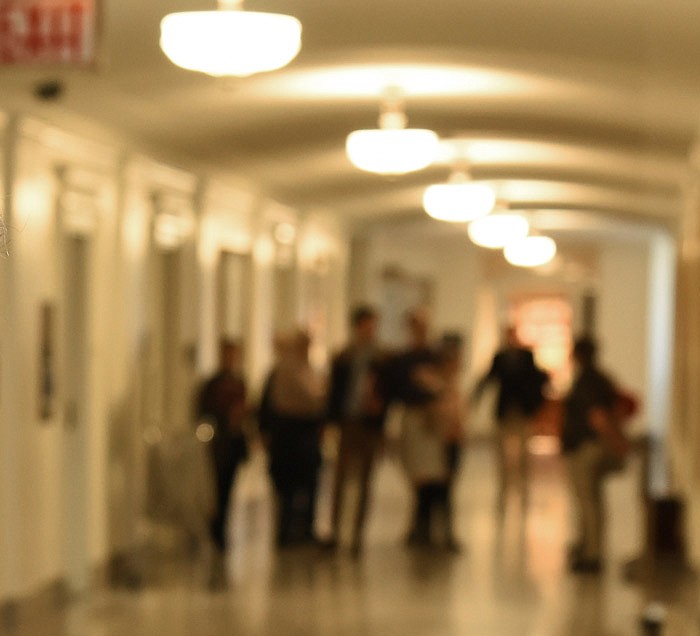The group "Clean Missouri," which backed the proposed constitutional amendment of the same name, is worried state lawmakers will ask Missourians to undo the amendment before it really takes effect.
Last week, Clean Missouri Director Sean Soendker Nicholson urged his plan's supporters to contact lawmakers in opposition to House Joint Resolution 48.
The House General Laws Committee recommended the full House debate and pass the proposal by an 8-4 vote, while the Standing Committee on Rules-Legislative Oversight endorsed the measure by a 6-2 vote.
The resolution is on the House debate calendar, so leaders could go to it whenever they choose.
However, since the resolution is a proposed constitutional amendment, even if it passes the House and Senate, it still must go to a statewide vote and be passed before it could be effective.
Last November, more than 1.4 million Missourians - or more than 62 percent of those who cast ballots - approved the "Clean Missouri" plan which was on the ballot as Amendment 1.
It made several changes to Missouri's Constitution, including:
- Changing the process used to redraw state House and Senate district boundaries every 10 years, after the federal census is finished.
- Creating the post of "nonpartisan state demographer" - to be chosen by the state auditor from applications - to oversee the redistricting process.
- Reducing the limits on campaign contributions that candidates for state Legislature can accept from individuals or groups.
- Limiting the gifts state lawmakers and their employees can accept from paid lobbyists to items that cost $5 or less.
- Prohibiting lawmakers and their employees from serving as paid lobbyists for a two-year period after the lawmaker leaves office.
- Prohibiting political fundraising on state property by candidates for, or members of, the Legislature.
- Requiring legislative records and proceedings to be open to the public under the Sunshine Law.
With voters' approval, the various lobbyist and gift provisions already are in effect.
The redistricting changes also are in effect, but won't be activated until some time in 2021 - after the official U.S. Census numbers for Missouri are reported to state officials.
If voters agree, HJR 48 would make several changes to the newly passed amendment, including:
- Eliminating the $5 lobbyist gift limit allowed by Amendment 1, so lobbyists could make no gifts to members of the General Assembly, or their staff.
- Eliminating the nonpartisan state demographer's position created by Amendment 1, and the requirement that the demographer draw redistricting maps using mathematical formulas based on partisan fairness and competitiveness.
- Changing the redistricting criteria in several ways.
Before Amendment 1, Missouri's Constitution required legislative districts to be "composed of contiguous territory as compact as may be," with an extra requirement that state Senate districts don't cross county lines except in areas where the population is too large to be in one district.
Amendment 1 added a criteria of partisan fairness and competitiveness, and an objective to keep cities within the same district unless they were too large.
The proposed new amendment would require districts to be composed of contiguous territory and as compact as possible - and also that they approximate squares, rectangles or hexagons to the extent permitted by natural or political boundaries.
The proposed new amendment also would create new redistricting commissions for the House and Senate, with members appointed by the governor based on recommendations from the congressional committees of the two political parties with the most votes in the previous election.
That mirrors the process the state has used for years, but with smaller committees.
In his email last week, Nicholson said: "This new stealth gerrymandering proposal is of, by, and for politicians - and is an outrageous attempt to undo the mandate from the 1,469,093 Missourians who voted for the Clean Missouri Amendment in November."
Nicholson also said the proposed amendment erases one of Amendment 1's provisions that the data used for drafting the new district maps be made public, "opening the door to backroom deals."
The resolution is sponsored by Rep. Dean Plocher, R-St. Louis County - who is a lawyer and chairs the General Laws Committee.
According to the House summary of the committee's March 25 hearing, he was the only one who testified in favor of the bill, while four testified in opposition, and another 22 testified for informational purposes.
The committee summary said the informational testimony generally said possible changes to Amendment 1 could undermine the will of the people, but that some changes to ethics provisions alone might be plausible - so long as the redistricting process wasn't modified.
The committee's summary doesn't indicate how many people testified in-person, as opposed to submitting written comments.

